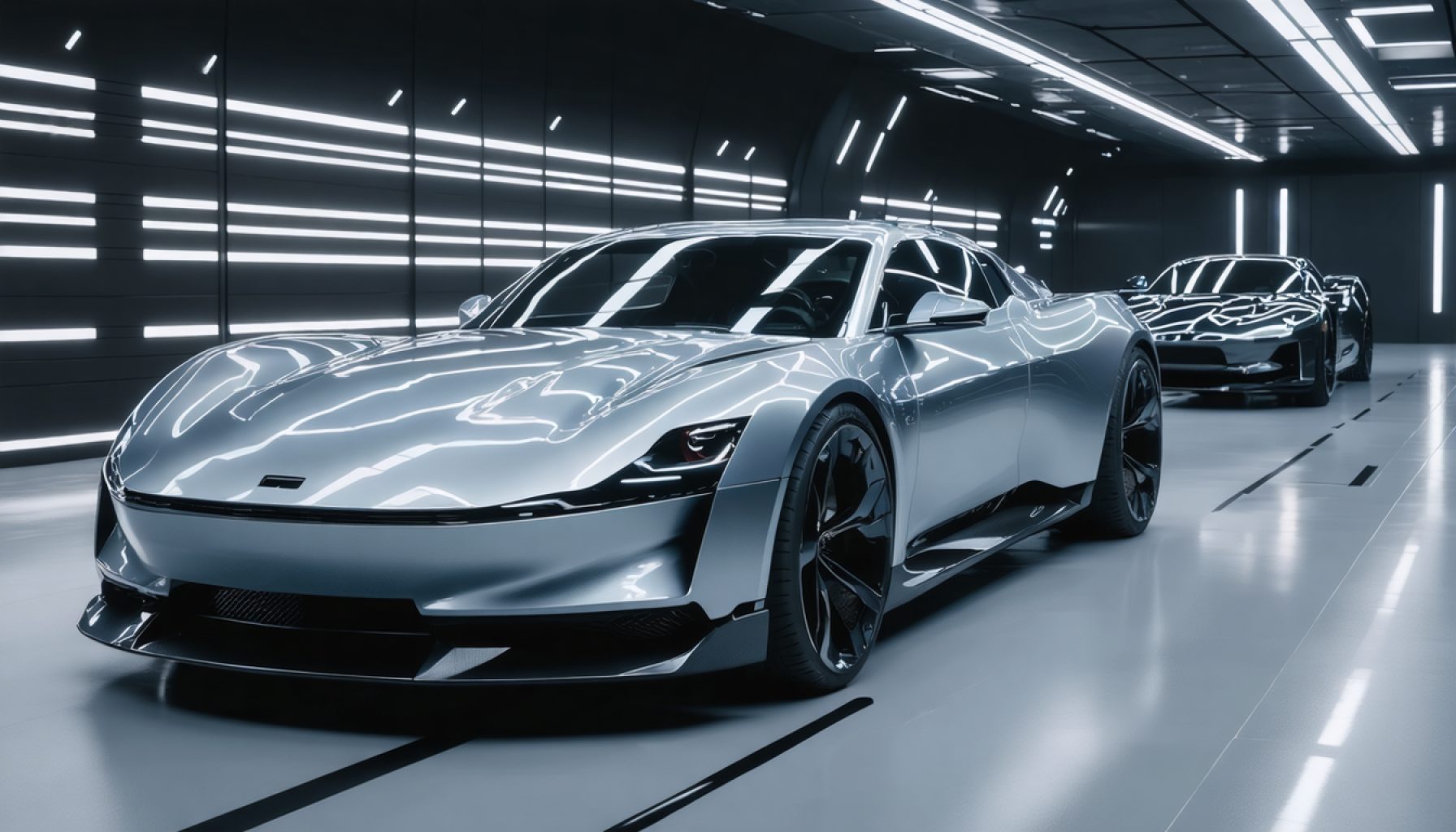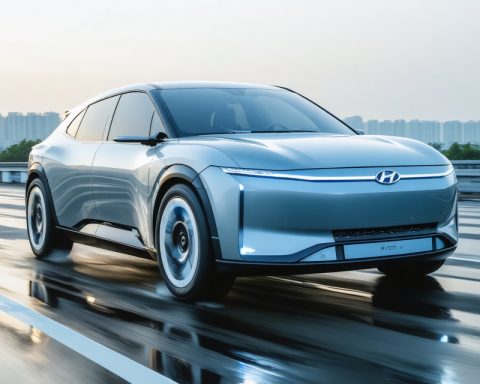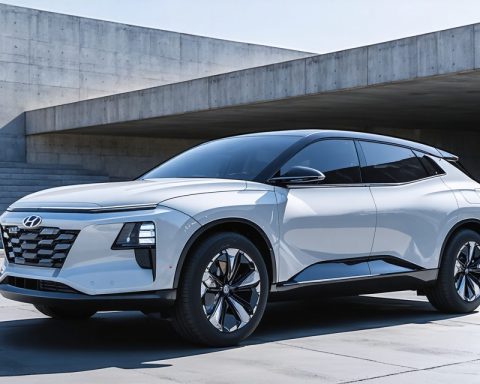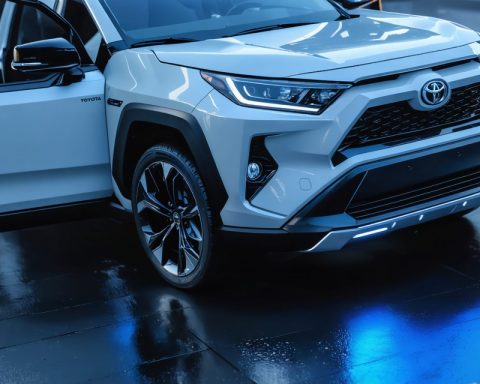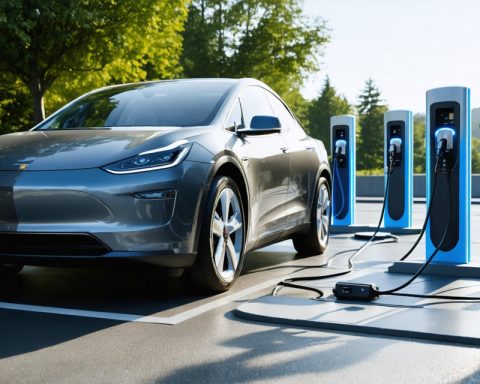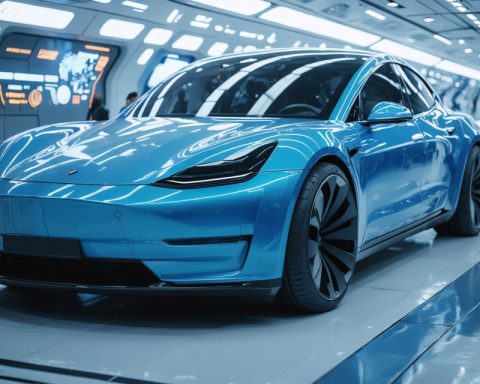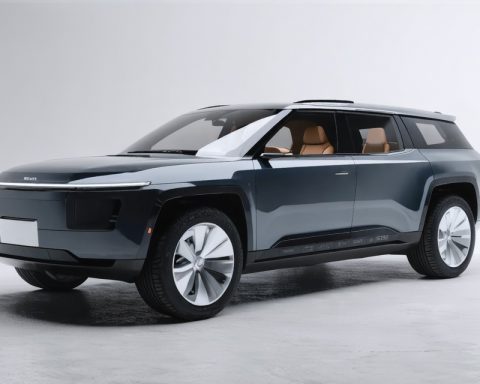- Irvine, California hosts a revolutionary e-mobility testing center by Mustang Advanced Engineering (MAE) for Rivian Automotive.
- The facility features the MAE-AWD-500-AC/EC chassis dynamometer, specifically designed for testing Rivian’s electric SUVs and trucks.
- Each dynamometer can handle 7,000 pounds of inertia, accommodating high-torque electric drivetrains.
- Additional dynamometers are installed for Rivian’s Electric Delivery Vans, including one in an environmental chamber for extreme cold tests.
- Intelligent integration of hardware and software ensures precise testing and meets Rivian’s rigorous specifications.
- MAE’s collaboration reflects a shift towards adaptive solutions in the electric vehicle industry, highlighting reliability and sustainability.
The sun-soaked city of Irvine, California, has become the birthplace of a groundbreaking transformation in electric vehicle testing, spearheaded by Mustang Advanced Engineering (MAE). Over the past two years, this American manufacturer has been quietly crafting a state-of-the-art e-mobility testing installation for Rivian Automotive, a burgeoning force in the electric vehicle arena.
Vivid innovation lies at the heart of this ambitious project, weaving together efficiency and precision. At the core of MAE’s endeavor is the advanced MAE-AWD-500-AC/EC chassis dynamometer, a marvel of engineering tailored specifically for Rivian’s trailblazing lineup of vehicles. Picture this: powerful electric SUVs and trucks being put through their paces on three of these dynamic systems, each custom-built to mirror Rivian’s distinct product dimensions and performance needs. These dynamometers are no ordinary machines; they convey an impressive 7,000 pounds of inertia, formidable enough to test the muscle of high-torque electric drivetrains.
But the innovation doesn’t stop there. MAE’s expertise extends to installing additional dynamometers for Rivian’s Electric Delivery Vans (EDVs), ensuring that these vehicles are ready for the demanding routes they will traverse. One special dynamometer even resides in an environmental chamber, simulating extreme cold conditions—an essential crucible for testing performance in all climates Mother Nature might conjure.
This collaboration is not just about hardware. It’s about intelligent integration. The testing ecosystem crafted by MAE combines physical equipment with sophisticated software, creating a symphony of precision. This harmonious setup meets the rigorous specifications set by Rivian, confirming that each vehicle that drives off the testing line is ready to redefine the roads.
The tailored approach of MAE exemplifies a broader shift towards more intelligent and adaptive solutions within the electric vehicle industry. By designing systems that cater specifically to the unique demands of electric drivetrains, MAE is setting a benchmark for how testing facilities can partner with manufacturers to push the boundaries of what’s possible.
Key takeaway? It’s an assurance that as electric vehicles evolve, the rigorous testing that supports their development does too—ensuring reliability, performance, and sustainability. Such innovations promise not only a brighter future for Rivian but also signal a leap forward for the entire electric vehicle landscape.
Revolutionary Advances in Electric Vehicle Testing at Irvine’s Cutting-Edge Facility
Introduction
In recent years, the city of Irvine, California, has become a hotbed of innovation in the electric vehicle (EV) sector. Spearheaded by Mustang Advanced Engineering (MAE), this dynamic transformation in EV testing is setting new standards for reliability and performance. Let’s explore some well-informed insights, future trends, and practical recommendations from this groundbreaking project.
Advanced Testing Facility and Technology
1. State-of-the-Art Engineering:
Mustang Advanced Engineering is pioneering the EV testing space with the introduction of its advanced MAE-AWD-500-AC/EC chassis dynamometer. Designed to withstand up to 7,000 pounds of inertia, this technology guarantees precision testing for high-torque electric drivetrains, making it ideal for Rivian’s robust lineup of SUVs and trucks.
2. Environmental Adaptability:
A highlight of MAE’s facility is the dynamometer stationed in an environmental chamber. This setup allows testing under extreme cold conditions, crucial for understanding vehicle performance across varied climates—vital for ensuring the reliability of vehicles like Rivian’s Electric Delivery Vans (EDVs) across North America.
3. Intelligent Integration with Software:
Beyond physical equipment, MAE integrates sophisticated software solutions. This combination of machinery and technology ensures the precise calibration of vehicles according to Rivian’s stringent specifications, setting a new benchmark in quality control.
Industry Trends and Prospects
1. Shift Towards Intelligent Solutions:
There is a broader industry trend towards designing testing facilities that not only accommodate the unique needs of electric drivetrains but also support adaptive and intelligent solutions. This trend promises improved efficiency and performance verification, heralding a new era for EV advancement.
2. Sustainability and Performance:
The emphasis on sustainable innovation ensures that as vehicles become more eco-friendly, the methodologies used to test them evolve in parallel. This evolution aligns with the global push towards reducing emissions and enhancing energy efficiency in transportation.
Practical Applications and How-To Steps
For EV Manufacturers:
– Partnerships: Engage with testing facilities like MAE to develop bespoke solutions tailored to your vehicles’ unique specifications.
– Environmental Testing: Prioritize testing in diverse environmental conditions to ensure global reliability.
For Consumers:
– Understand the Technology: Awareness of the rigorous testing processes can provide peace of mind regarding the durability and performance of your electric vehicle.
– Sustainability Focus: Supporting manufacturers that invest in comprehensive testing and sustainable practices contributes to a greener planet.
Possible Challenges and Solutions
1. High Costs:
Advanced testing technology and facilities necessitate significant investment. Collaborative funding and governmental support can alleviate financial strains, enabling smaller manufacturers to access cutting-edge testing.
2. Technological Advancements:
Keeping up with fast-evolving technology is a challenge. Regular training and development programs for engineering teams can ensure that technology integration and updates are seamlessly managed.
Insights and Predictions
The collaboration between MAE and Rivian is indicative of future industry patterns: partnerships where innovation is driven by custom-tailored testing solutions will become the norm. As EVs continue to gain traction, rigorous testing will ensure that consumer expectations for performance and reliability are consistently met.
Conclusion and Recommendations
Evangelizing comprehensive, custom-tailored testing innovations will not only redefine vehicle performance but also nurture consumer trust. Manufacturers must continue investing in advanced testing technology while fostering partnerships that encourage sustainable progress.
Related Links
For more detailed insights into cutting-edge engineering solutions, visit Mustang Advanced Engineering or explore the latest electric vehicle innovations at Rivian Automotive.
In conclusion, these new developments promise an exciting future for the EV industry, bridging the gap between innovative technology and practical, sustainable applications.
